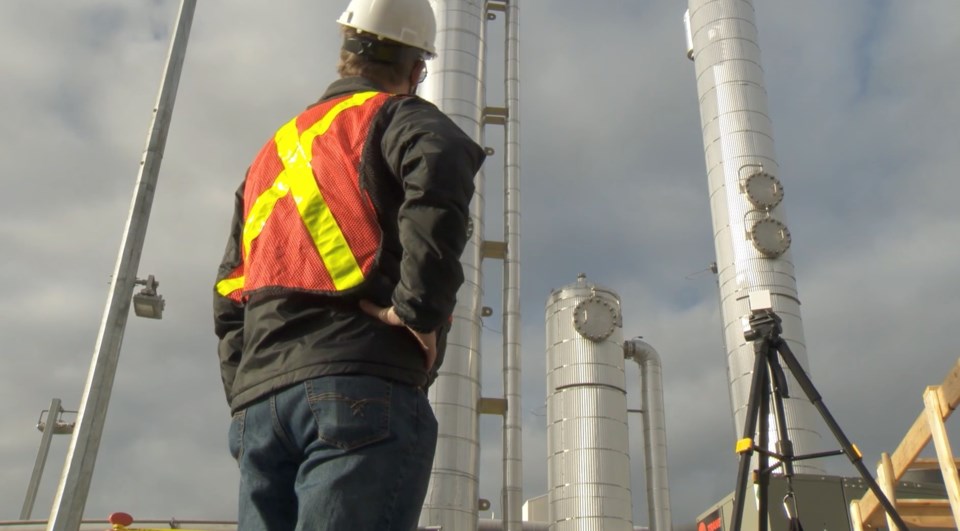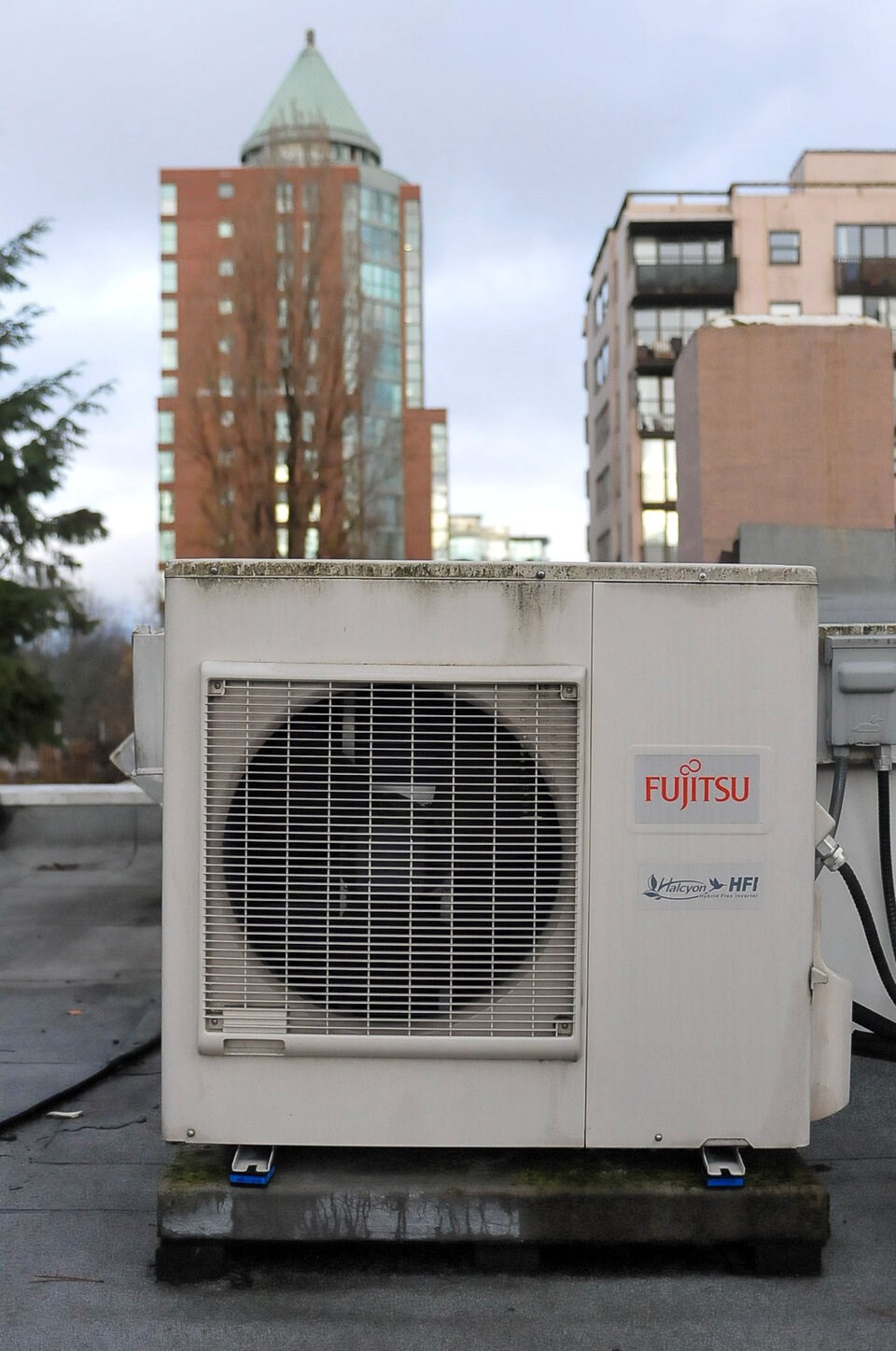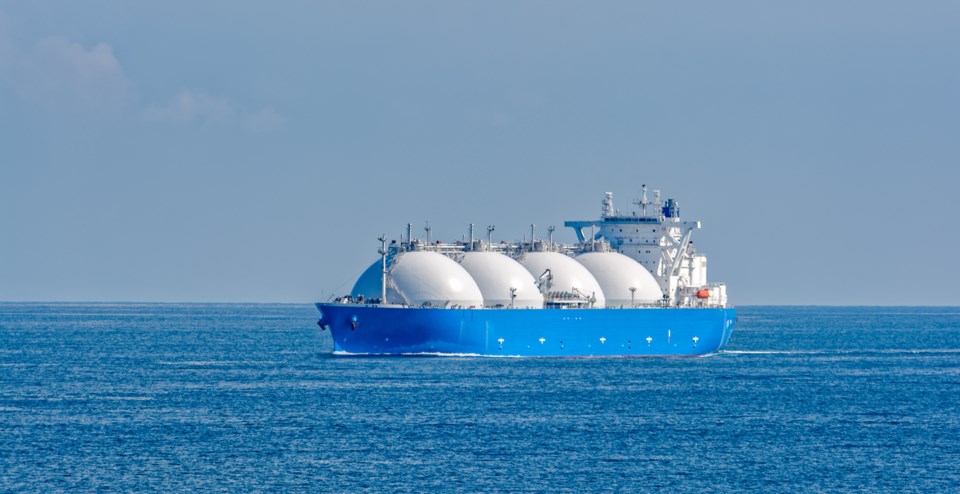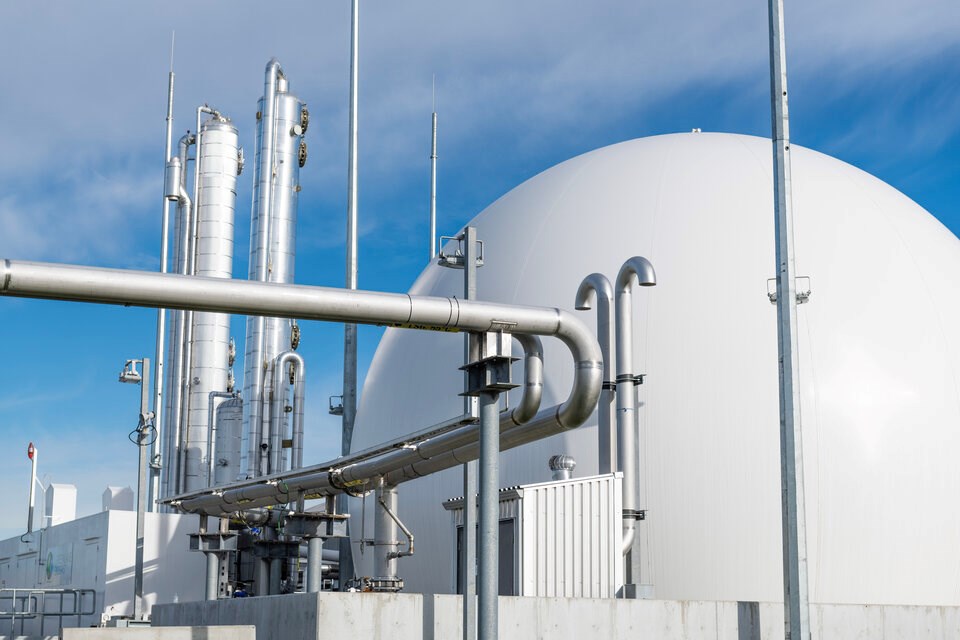British Columbia’s utilities regulator has rejected a key part of FortisBC’s 20-year plan to decarbonize its gas supply.
In a Wednesday, the BC Utilities Commission (BCUC) turned down a proposal in which new buildings would be mandated to receive 100 per cent renewable natural gas (RNG) without paying a premium. The decision found the move would result in “undue price discrimination” as existing customers would be forced to subsidize the added costs.
“We rejected that,” said BCUC chair and CEO Marc Jaccard in an interview. “And the reason we rejected it is because we said it was undue discrimination.”
“If they were being deemed to get this higher value product, they should have paid the extra cost of it being in the system.”
The decision took into consideration submissions from 24 intervenors, mostly cities and environmental groups. In documents submitted by the City of Richmond and later quoted in the BCUC decision, the city claimed that under the plan existing Fortis customers would be providing a combined $750 million in subsidies.
“When you look at a scheme that was proposed, it was unfair. It was the furthest thing away from allowing consumer choice,” said Ben Geselbracht, a councillor from the City of Nanaimo. “Just based on that logic alone, it's reasonable to not allow that to go forward.”

Unlike fossil gas, RNG is made up of methane captured from wastewater treatment plants, landfills, wood waste and . Advocates of RNG say it’s a carbon-neutral solution that doesn't require a massive overhaul of public and private infrastructure. FortisBC plans for 15 per cent of its natural gas supply to come from renewable sources by 2030, claiming it will reduce customer emissions by 30 per cent.
Detractors of the alternative gas often note that at the molecular level, RNG is nearly identical to fossil gas. That means if RNG seeps into the atmosphere, it acts as a greenhouse gas over 80 times more potent than carbon dioxide over a 20-year period.
At the same time, much of what FortisBC plans to sell as RNG is actually produced elsewhere and burned by others. Instead of actually mixing all the RNG it plans to buy into its gas transmission system, FortisBC is looking to purchase much of that gas indirectly from producers in places like . When someone else burns RNG in the United States, FortisBC will get credit for curbing their own carbon pollution.
Fortis needs a plan that doesn't include gas, say city councillors
Councillors from several large B.C. municipalities looking to decarbonize their own building stock described the decision as a big step toward weaning the province off gas.
“It’s a really big deal,” said Vancouver Coun. Christine Boyle. “In Vancouver, 55 per cent of our carbon pollution comes from burning gas in buildings.”
By avoiding new gas hookups in new buildings, Boyle said B.C. municipalities will save vast sums of money trying to retrofit them later.
“We need to be getting off of gas, and Fortis needs a plan that isn't reliant on the continuing expansion and use of gas,” Boyle added. “That’s the big question in front of them.”
Geselbracht said that as the City of Nanaimo has struggled to decarbonize its building stock, it was clear from the beginning that there wouldn’t be enough RNG to supply buildings across B.C.
“You can never compare that to switching over to heat pumps,” he said. “I think it’s really good news for any municipalities looking to meaningfully reduce greenhouse gas emissions.”
New Westminster Mayor Patrick Johnstone said that while RNG has a role in replacing more polluting fuels — especially for heavy industry and shipping — there's no sense in sending it to homes where there are better low-carbon heating alternatives.
Johnstone criticized the BCUC's decision for only asking “Does this serve the ratepayer?”
“It should be empowered to ask 'does this serve society and its goals toward climate action?'” he said. “But it would take a change in government mandate for it to do that.”
FortisBC 'pleased' ruling lays foundation for gas over next two decades
FortisBC had argued that its RNG connection service might convince cities to allow new buildings to receive a gas hookup under the province’s Zero Carbon Step Code. That code allows municipalities to target the carbon output of new buildings by pushing builders to install low-carbon heat pumps or by building more efficiently.
Several of the municipalities intervening in the BCUC decision said the cost of renewable gas cannot compete with running electric heat pumps. Some have pointed to modelling in the Zero Carbon Step Code, which states that about 90 per cent of British Columbians live in climate zones where electrification of new homes would result in cost savings.

Losing its pitch on 100 per cent RNG hookups could be a big blow to FortisBC, and it’s not clear how the company will respond in the long run.
In a statement Wednesday, a spokesperson for FortisBC said the company would review the decision and update customers on what it would mean for them over the coming weeks.
Meanwhile, the company said it was “pleased” the BCUC has approved “key elements” of its plan, something that “will mean that all FortisBC natural gas customers will have a portion of their gas designated as renewable natural gas” and that that will “increase over time as FortisBC acquires additional supply.”
“We are pleased with this decision as it confirms that the gas system will continue to play a key role in meeting the energy needs of British Columbians and lays the foundation for activities spanning the next 20 years,” wrote FortisBC in a statement.
FortisBC has LNG investments rejected, wins on long-term plan
While turning down its mandatory RNG hookup proposal, the BCUC did approve a FortisBC proposal that would allow customers to choose to receive RNG, as well as a plan that will mandate a “notional” RNG blend for all of its customers across the province.
In a second , the BCUC also rejected FortisBC’s plan to invest in liquefied natural gas (LNG) — largely methane recovered through hydraulic fracking and shipped to overseas markets as a super-cooled liquid. The commission said it was unable to determine whether the investments would be beneficial to FortisBC’s customers or in the public interest, due to “uncertainty” associated with LNG bunkering and export markets.

Based on the evidence filed, the BCUC said it “is not in a position to make a finding that pursuit of sales or infrastructure investments in LNG for these markets will be beneficial to ratepayers and in the public interest.”
The BCUC did find FortisBC’s long-term gas resource plan is “an aspirational pathway forward that results in a reasonable likelihood” the company will meet its greenhouse gas reduction targets.
The BCUC panel said it's possible FortisBC will not meet its 2030 emissions reduction requirements, but that rejecting its entire plan would prevent it from ever reaching its target.
“The panel considers that such an outcome would not serve the public interest,” said the decision.
FortisBC is scheduled to file its next long-term plan by the end of March 2026, when it will be required to detail how it plans to further reduce its greenhouse gas emissions. Until then, the BCUC said it would be appropriate for FortisBC to present “more frequent future plans” in order to address the challenges the company faces during the energy transition.



